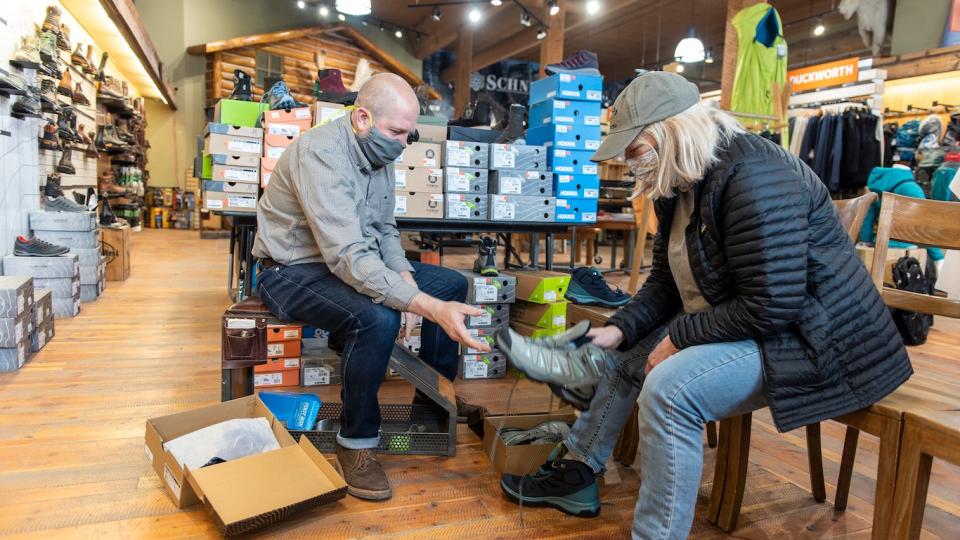House passes PPP bill giving small businesses more time, flexibility to access small business loans
WASHINGTON – Thousands of restaurants, nail salons and other small businesses unable to take full advantage of the financial lifeline provided through the federal Paycheck Protection Program would get some needed flexibility under a bipartisan bill the House overwhelmingly passed Thursday.
The bill, now headed to the Senate, loosens some key rules regarding loan repayment and spending restrictions of the PPP. The program, created in March as part of the CARES Act, has already provided more than 4.4 million small businesses with an infusion of cash to keep their workers on the payroll during the coronavirus pandemic that has devastated the U.S. economy and upended daily life.
The $660 billion program, enacted as part of Congress' response to the coronavirus crisis, provides businesses employing up to 500 workers forgivable loans of as much as $10 million. But many businesses said the program's structure is too rigid to accommodate different types of small businesses, especially restaurants whose rent-heavy expenses do not fit well in a program that prioritizes rehiring of employees.
Next round: House passes $3 trillion coronavirus stimulus plan, faces pushback in Republican-led Senate
The new changes would:
Lower to 60% from 75% the minimum portion of the PPP loan that must be spent on payroll. The rest must be spent on rent, utilities and other business-related expenses.
Extend from eight to 24 weeks the amount of time the loan can cover.
Extend from two to five years the time new PPP loans must be paid back if the amount provided doesn't convert into a grant.
New York Democratic Rep. Nydia Velázquez, who chairs the House Small Business Committee, said the changes are needed to address an evolving pandemic which has led to widespread adoption of social distancing measures that continue to keep many businesses shut or far below capacity.
"Small businesses continue to have a tough road ahead and they need flexibility in how they use this emergency capital," she said on the House floor before the chamber voted 417-1 to adopt the legislation.

The National Federation of Independent Businesses has endorsed the bill, saying it would clear up some of the confusion surrounding the program's rules and give mom-and-pop enterprises more time and flexibility to open.
"Local and state government shutdown orders have extended beyond expectations when the CARES Act was enacted on March 27, 2020, making re-opening small businesses and re-hiring employees challenging," Kevin Kuhlman, NFIB's vice president of Federal Government Relations wrote in a letter to lawmakers urging them to support the measure.
Republicans who control the Senate could take up the bill as early as next week. They have shown an openness to addressing some changes to PPP.
Florida GOP Sen. Marco Rubio, who chairs the Senate Small Business Committee, has said he expects most of those proposed changes from the House to be acceptable to the Senate. One possible disagreement could emerge over the House provision extending the loan amount to 24 weeks, Senators have discussed a short period, such as 16 weeks.
The House passed the measure on the second day that many members were able to vote by proxy, a historic change that allows one member to designate another as their "proxy" and cast floor votes on their behalf.
While the goal was to allow lawmakers to have a voice if they could not travel to Washington safely due to the coronavirus pandemic, House Republicans have argued that the rule does not abide by the Constitution and filed a lawsuit Tuesday evening challenging it.
Republicans argue any measure passed under this format, especially one where proxies cast the deciding vote, could be challenged legally, a point House Minority Leader Kevin McCarthy echoed when it came to the small business legislation on Thursday.
“I think everything taken up breathes the doubt of whether it's constitutional or not,” the California Republican said at his weekly press conference. “It is a legitimate question. It's about the constitutionality of anything they want to move forward.”
Contributing: Christal Hayes
This article originally appeared on USA TODAY: Coronanvirus: House loosens PPP rules to ease small business loans

 money
money 